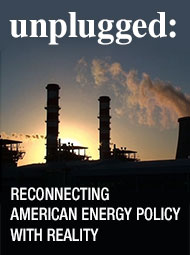Last week, ahead of district work periods for both the House and Senate over 4^th of July, two key committees pushed forward on energy legislation, reviving chatter that we might, just might, see a significant energy bill come together this year. It has now been nearly 10 years since enactment of the Energy Independence and Security Act (EISA) of 2007, and 12 since the landmark Energy Policy Act (EPAct) of 2005 was signed into law.

Consider all the changes (abundant domestic natural gas, electric vehicles, utility-scale solar) in the national energy conversation over the past decade. And, reflect for a moment on the steady hands, on both sides of the aisle, leading the Senate Energy and Natural Resources Committee and the House Energy & Commerce Committee. It’s a good time for Congress to show leadership, debate the issues, and set some policy direction that will help consumers get access to more clean, affordable energy in the coming years.
There are only 3 “legislative weeks” remaining before the start of the August work period for both chambers. With other high priority, campaign-promise level issues (tax reform, health care, … to name a few) it seems unlikely that a major energy package can come together before Labor Day. But it’s appropriate to commend the leadership of these key Committees for getting back in the saddle again on critical energy issues.
So, what topics and issues are in the herd on this long drive?
On June 29, Senate Energy and Natural Resources Chairman Lisa Murkowski (R-AK) and Ranking Member Maria Cantwell (D-WA) released text for S. 1460, otherwise known as the “Energy and Natural Resources Act of 2017.” It’s largely based on S. 2012, the comprehensive energy package Sens. Murkowski and Cantwell created and shepherded through a long process last year with ups (85-12 bipartisan approval vote on the Senate floor) and downs (failed conference committee with the House). Among many provisions, the new bill seeks to boost hydropower as a renewable resource, to improve federal and state coordination on oil, and natural gas production, and promotes more energy innovation research on topics as diverse as microgrids, nuclear technology and energy storage.
It’s not yet clear whether the new Senate bill solves the issues that bogged down last fall’s conference committee. Natural resources and cybersecurity were often cited as stumbling blocks, although some point to politics and a desire by some in late December to wait and see what the Trump administration might bring to the table. But Leader McConnell has given the bill a procedural nod by adding it to the floor calendar. Note to those outside the beltway – this isn’t a firm commitment for a day and time, but a helpful gesture all the same.
While the House doesn’t yet have a formal energy package, the House Energy and Commerce Committee held a lengthy (a colleague called it “old school”) markup on June 28 of several bills. Chairman Greg Walden (R-OR) noted that the committee has “been quietly working on legislation that truly makes a difference for folks across the country” and has “examined barriers to modernizing the nation’s energy infrastructure and looked at opportunities to modernize our environmental laws with an eye on what’s doing best for consumers, the environment, and businesses across the country.”
Some key issues covered in the markup include: reauthorization of the Brownfields program, modernized siting and permitting for natural gas pipelines and hydropower facilities, and increased state flexibility for implementing air standards.
Over the summer, PACE will watch closely to see how each chamber advances its priorities and if the House and Senate energy leaders, and their senior staff, can come to agreement. And in this space, we’ll analyze elements of the pending legislation we think are most beneficial for consumers and invite guest commenters to share views.
So, please saddle up with us and ride along for this important national energy debate. And over August recess, if you encounter one of your federal lawmakers, thank them for tackling these issues and remind them that voters all over the country count on strong, smart policies to deliver clean, affordable power.





